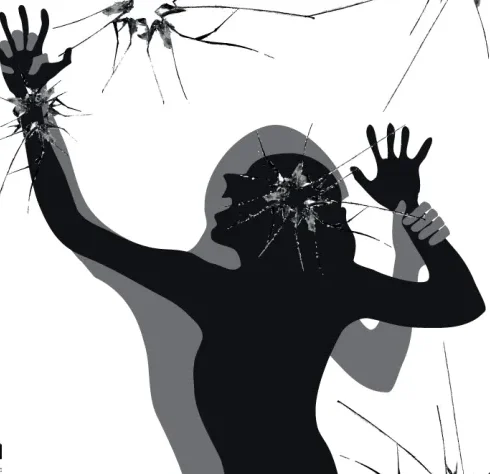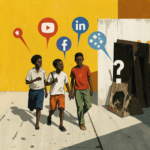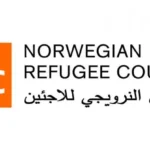Darfur followups : Enaam Alnour
The stories of refugee and displaced women in Sudan differ from sexual harassment during the war. You find them sharing stories that they have experienced themselves, or heard about, and they expose the harassers by speaking in closed circles where their actions are described.
This is an option for survivors who are less at risk of speaking out in a society that still blames and stigmatizes female speakers because of the attacks they were subjected to.
Revealing it remains one of the few remaining coping mechanisms for women, if not to achieve justice, then at least to warn others about the harasser.
Since the outbreak of war, the number of women and girls in need of protection from gender-based violence has increased from three million women and girls to 4.2 million; This demonstrates the extent of the burden that the fighting has left on women, and the United Nations has received horrific reports of sexual violence against women and girls, including cases of rape.
Using feminism as an excuse for harassment
Six Sudanese women testified that they were subjected to sexual, verbal and physical harassment in exchange for a living from people known to them, and a number of them reached the point of rape.
Among the witnesses are women working in civil society organizations and journalists, both married and single. They all preferred not to mention their names, so we replace them with pseudonyms for the purpose of maintaining confidentiality.
Rabaa (pseudonym), a 28-year-old girl who was displaced from the city of Kassala to Port Sudan on January 5 of this year, says that her colleague used liberation and feminism as an excuse to harass her when she spoke to him about how she needed help from him to receive support.
From a human rights organization so that she could leave to a safe country, but he soon started talking about sex and sexual pleasure; When she rebuffed him, he accused her of being backward and of a rigid mind, saying, “You are an activist, and the matter is normal, so you should not be upset.”
Salim (a pseudonym) was not satisfied with just verbal harassment. When they met for the first time at a human rights workshop in Nairobi, she was surprised by him knocking on her room door at night with a bottle of wine in his hand to tell her that he had come to apologize for his previous conversation and crossing boundaries with her.
Rabaa adds, “I allowed him to enter after hesitation and left the door to my room open in case any incident occurred, but (Salim) later closed the door, citing cold or that someone would see them and misunderstand.” Then, while speaking, he deliberately touched her leg, and when she rebuked him, he replied that it was “a normal thing among close friends.”
She revealed that her attempts to repel him were unsuccessful, but rather he approached her closer with looks that she described as lustful. Then he said, “I am drunk and something could happen between us.” (Rabaa) assured him that nothing would happen between them and asked him to leave.
He answered her in a loud voice, “You are free and I am free. Why do you make me crazy when I work there with a retarded girl?” and (Salim) put his hand on me. Raba’a’s shoulder, then she went crazy and started screaming and kicked him out and threatened him that she would expose him if he did not come out.
Later, he contacted her again, not to apologize for what he had done, but to confirm it, saying, “If you were not drunk, I would have raped you; you are all just tools for us to have fun with.”
Attempted rape of a journalist
Zahraa (a pseudonym), a 30-year-old journalist, recounts that she met a journalist colleague of hers in a hotel in Port Sudan on the twenty-first of August last year while she was coming from Khartoum, while she was waiting for her time to clear her procedures to travel to Cairo.
Zahraa says that two days after her arrival, he surprised her by coming to her room carrying a smelly drink, so she told him, “I do not drink alcohol.” But she allowed him to enter, even though she was not accustomed to such an atmosphere and did not want to appear reactionary or backward, according to what she said.
Zahraa explained that she invited him to the balcony to avoid sitting with him in the room. Then he began to tell her about his personal life and his bad marriage, and he began to cry, trying to hold her hand.
She said, “I was afraid and quickly pulled my hand away and left the balcony, citing thirst. All he had to do was catch up with me and grabbed me tightly and started tearing off my clothes.
He then threw me on the bed while he was trying to unbutton his pants.” With both hands, I was able to escape from him. I left the room almost naked. I miraculously survived a rape attempt that might have destroyed my life, or that’s what I thought.”
The next evening, he waited for her in the corridor to apologize to her, expressing his remorse and asking for her forgiveness.
Zahraa says, “I am still under the influence of shock and terror, and my feeling towards him was terrifying.”
Zahraa did not call for help from the Sudanese Journalists Syndicate and said, “I did not think about that, as I do not know the mechanisms for seeking help or its results, and I am not confident that they will take my word for his word, and in the end I am a woman they barely know, while they know him well.”
Zahraa’s experience did not end with that rape attempt. Rather, this was just the beginning of a series of blackmail and threats reinforced by her silence.
She says, “His feeling that the incident had gone unpunished made him go further. In fact, the incident itself became a card to blackmail me with, and he always told me that we were in a society.” He will believe me and blame you if you decide to expose what happened.”
Expectations of the Journalists Syndicate
For her part, the Secretary of Freedoms at the Sudanese Journalists Syndicate, Professor Iman Fadl, said that the Freedoms Secretariat does not rule out the existence of cases of sexual exploitation, but at the same time accessing information about this type of violation is very difficult due to the sensitivity of the matter on the social and personal levels.
She added, “We at the Journalists Syndicate defend the rights of male and female journalists. All violations are of great concern to us, and the Syndicate is always looking for solutions to them, but crimes of sexual exploitation require sufficient awareness and courage to report them.”
She confirmed that the union expected that there would be reporting of such violations due to the sufficient confidentiality and privacy to deal with them, the protection of the survivor, and the awareness and knowledge of female journalists in reporting violations.
Fadl called for the necessity of integrating roles in the process of encouraging survivors to report and submit their testimony to the union for the purpose of documenting the cases.
I expected that there would be stories of sexual exploitation in its various forms, which could occur from society itself to women of all segments due to the lack of adequate protection in light of this chaos.
Fadl said, “During a year of war, the union has monitored, so far, only one case of a sexual assault on a journalist in her home by one of the forces of both sides of the conflict in Sudan.”
In the same context, the Director-General of UNESCO, Ms. Irina Bokova, considered that violence against female journalists is a double attack because of their gender and profession.
To confront this phenomenon, the United Nations Security Council, in Resolution (2222) – May 27, 2015 – highlighted the special risks to which female journalists and media workers are exposed in their work, and called for taking these risks into consideration so that the necessary measures are taken to ensure Their safety during times of armed conflict.
Sliding in for sex for money
Rehab (a pseudonym), an orphan whose father said that she was forced to flee from Khartoum to the city of Shendi on June 3 of last year by a decision from her mother due to the difficulties and threats the family faced due to her human rights work. She left behind the responsibility of her five sisters.
Rehab reported that she then received an offer to finance her travel from Sudan to Nairobi, and then another offer of living and studying, but nothing was free of charge.
This was done by her colleague luring her by saying, “I want you to come and I will provide you with a job. If you agree, I will finance your travel and studies.” She pointed out that many of her colleagues received similar offers from the same person.
She added, “I knew that he intended to exploit me, and I submitted to that because I had no choice in the absence of money. You have two options if you want to complete your path and escape to another country. Either you give your body to someone or you practice prostitution, and the two are two sides of the same coin.” (violence).
Harassment under the guise of civil society
In addition to putting pressure on women under the pretext of “liberation” and reprimanding them if they do not submit to harassment, the harasser, Jumaa (a pseudonym), took advantage of his relationships with dozens of organizations active in human rights issues to ensure the silence of the women he harassed, taking advantage of the need of many of them for work or grants to reach safe places.
This is what happened with the feminist activist Kholoud (pseudonym) (28 years old). Simply asking her about a harasser working in civil society organizations was enough. “I was working with him on a project in Darfur before the war and he was its coordinator.
During the war, when I took refuge in Uganda, I even communicated with him.” He helps me reach organizations that support human rights activists. He took advantage of his power and my need for work and money to go along with me.”
After a series of correspondence for three weeks, to verify the information she provided, the young woman decided to withdraw her testimony shortly before publication, for fear of the reaction of the harasser, with whom her relationship did not go beyond the framework of work.
However, he kept inviting her to his home in Uganda more than once. She described his looks at her as lustful, with sexual and intimidating compliments.
It should be noted that all the testimonies of their harasser stated that the harassers used their extensive relationships with civil society organizations or others to nominate and employ women, as a card to pressure them to remain silent about the harassment.
In a related context, two victims narrated how they were exploited by their colleague in a Sudanese human rights organization that works to document violations of civilians during the conflict, especially the experiences of women and youth.
After they fled from Khartoum to Kassala on September 15 of last year, their colleague contacted them and paid the costs. When they traveled to Uganda, he met them at the airport and took them to the house he claimed to have rented for them.
Al-Oula says, “We stayed there for two days, but Saber’s (pseudonym) behavior and actions, including his attempts to touch and get close at every opportunity, were clearly disrespectful from the lustful looks” and her failure to respond to attempts to stop him, no matter what they said to him or did.
She added that he always invited his friends to the apartment to drink alcohol, then they would go out and he would come back alone late.
On one occasion, he invited them to his friend’s house to attend a special occasion, and when they agreed to accept the invitation after insistence, Saber lured them to drink alcohol and then had sex with them.
The second narrates, “I do not hide my feeling of extreme fear of him. When I woke up, I found myself and my friend in a room where they raped us both.
We were faced with a fait accompli when he spoke to us and said that he did not know who raped us under the pretext that they were drinking alcohol. I feel disgusted and disgusted whenever I remember this person.” Or anything related to it.”
Human rights activist Othman did not deny the occurrence of harassment in human rights institutions, like all public and private institutions. He believes that they must be objective and that human rights institutions must deal transparently with this behavior and announce the cases they have.
Othman added, “The human rights community is able to bear this type of accusation and confront it despite its cruelty, and it must be a role model in setting rules to control this behavior and protect male and female workers.”
Believing survivors
Many survivors choose not to report sexual crimes due to disbelief, blame and stigmatization, often carried out by authorities, society and even friends and family.
The principle of believing female survivors is considered an extremely complex matter by many Sudanese men, and faces harsh criticism due to beliefs and customs. To the point where there is no room for reporting violations
In this context, activists believe that the problem is not only the behavior of the harasser, but rather the social environment and prevailing culture in which the harassment occurs.
For them, sexual harassment is not a collective act or a public political crime, as much as it is a personal criminal assault. A number of human rights activists agreed, “Sudanese culture is determined to protect and defend harassers to silence and suppress survivors.”
One activist went on to describe the issue of believing survivors as a weapon of resistance for women against sexual abuse. And attempts to silence them and restrict their participation in public space.
He said that protection and support must necessarily be provided to survivors and encouraged to speak out despite the mechanisms of social oppression that defend harassers. “We believe survivors to create a safe environment for women to speak freely and because we know harassment happens,” he said.
Protecting survivors
Survivors of sexual violence in all its forms need access to safe, high-quality health care and psychosocial support.
However, Sudan’s healthcare system has completely collapsed due to war, and social norms often pressure women to remain secretive, with stigma attached to mental health services.
In the same regard, senior United Nations officials, in a joint statement, called for an immediate end to gender-based violence, including sexual violence, and not to use it as a means of war to terrorize people.
They stressed that the real number of cases of violence is much higher than what is reported, as they find Many survivors have difficulty reporting sexual violence due to the perception of shame, stigma, and fear of retaliation.
In the midst of these challenges, Ms. Ihsan Abdel Aziz, coordinator of the Women Against Injustice campaign, says that protection for them consists of providing moral support to abused women during the war.
Sexual exploitation in war began as a phenomenon until it has now become one of the tools of war, with the sexual exploitation of girls, in addition to the issue of forced marriage and marriage of minors, and other practices that violate women’s rights, in addition to using them as maids for cooking, making bread, breaking bread, and other hard work to serve both sides of the conflict.
She added, “We have Communicate with survivors in shelters and camps for the displaced, as well as refugee camps, through our members in the states. We also care about training.
For example, members’ familiarity with international human rights agreements makes them more keen to provide protection for others and for themselves.
The Geneva Conventions, Additional Protocols, and human rights instruments all stipulate a legal duty towards them.
Violated women and survivors and providing protection for their physical and psychological integrity and dignity.”
Weak legislation and psychological obstacles
Human rights activists see weakness in Sudanese legislation regarding gender-based violence, especially sexual harassment.
Sudanese legislation does not provide adequate legal protection for women in the streets, workplaces, or public squares.
The issue is not limited to the texts of the law, but rather to the entire framework of justice in the state, the performance of the judicial and law enforcement agencies, and the legal measures and procedures that are supposed to provide the necessary protection for the complainant, in addition to the social and cultural contexts.
The Sudanese Penal Code criminalized sexual harassment in 2015 by amending Article (151), which states: “Any person who commits an act, word, or behavior that constitutes an temptation or an invitation to another person to engage in illicit sexual intercourse or engages in disgraceful or unlawful behavior is considered to have committed the crime of sexual harassment.
” An indecent act of a sexual nature that causes psychological harm to the victim or gives him a feeling of insecurity shall be punished by imprisonment for a period not exceeding three years and flogging.”
As for the Sudanese Child Law of 2010, it increased the penalty for child molestation and may reach imprisonment for up to (15) years, but it criminalized sexual harassment without defining it, and the definition contained in the Criminal Code is taken into account – according to what jurists say.
The effects of harassment, whether sexual or verbal, extend and cause serious harm to the girl. In multiple cases, the body translates emotions into physical symptoms that are difficult to deal with.
Sadness translates into isolation and distance from gatherings and events, in addition to other physical symptoms such as loss of desire for food and remorse .
The extent of the harm and the severity of the suffering depend on the harassment survivor’s response to the symptoms, as we find that in closed societies the survivor tries to live with the effects of harassment, while others resort to speaking out with close circles or posting on social media to mitigate the impact of the harassment they were exposed to.
In this context, the psychologist Dr Shatha Baballah Barima said that sexual exploitation is a dangerous psychological and physical weapon and one of the tools of pressure in wars, and it has very significant effects on women in the long and short term on survivors.
She added that there is no doubt that sexual exploitation has a major devastating psychological impact on survivors, such as psychological trauma resulting from sexual assaults, which may lead to major psychological disorders, called post-traumatic stress disorder, resulting from imagining the event, feelings of shame, depression, and anxiety.
Many victims feel Guilty in not defending themselves.
Shatha added that the survivor who has been exposed to sexual exploitation develops the problem of psychological disturbances and loss of trust in others, which affects social, emotional and family relationships and may lead to suicide attempts.
She called for the necessity of providing health and psychological care services to survivors and working to eliminate issues of social stigma so that the survivor can regain her life.
Treating survivors of sexual exploitation and all forms of violence is just one way to address this harmful practice and to truly put an end to this issue. Societies must make cultural shifts away from norms that perpetuate gender inequality.








